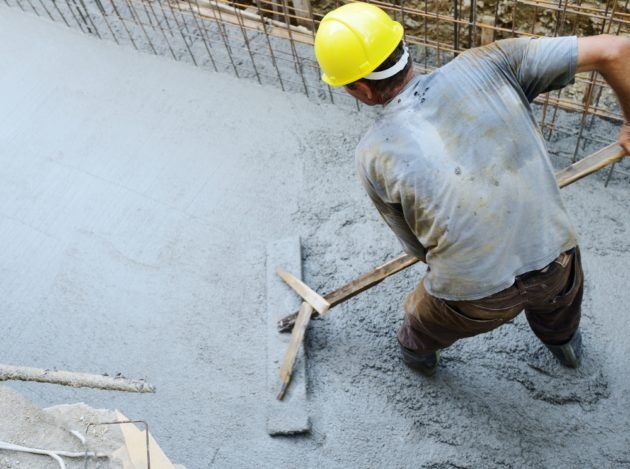Innovative Concrete Layout: Boost Your Building with Personalized Concrete Work
Innovative Concrete Layout: Boost Your Building with Personalized Concrete Work
Blog Article
Revealing the Eco-Friendly Advantages of Using Recycled Concrete in Lasting Building Practices
In the world of lasting building and construction techniques, the utilization of recycled concrete stands as a critical yet typically underestimated resource. Beyond its traditional applications, recycled concrete offers a myriad of eco-friendly advantages that extend much past the boundaries of conventional building and construction products.
Environmental Benefits
By including recycled concrete right into construction methods, there is a substantial reduction in the need for new raw materials, leading to preservation of natural resources. In addition, the use of recycled concrete lessens the amount of waste being sent out to land fills, thus reducing ecological air pollution and reducing the strain on garbage dump capacities (Concrete).

Moreover, the production of typical concrete is a considerable source of carbon emissions because of the energy-intensive process of cement production. On the other hand, recycled concrete has a lower carbon impact as it minimizes the demand for brand-new concrete manufacturing. This decline in carbon exhausts contributes to mitigating climate modification and sustains sustainable building and construction practices. In general, the environmental benefits of using recycled concrete are considerable and play a crucial function in advertising eco-friendly building techniques.
Cost-Efficiency
Attaining cost-efficiency is a critical factor to consider when analyzing the application of recycled concrete in construction projects. Among the key advantages of making use of recycled concrete is its cost-effectiveness compared to typical concrete. The manufacturing of recycled concrete includes less power and resources as it utilizes existing materials, decreasing the overall task costs substantially. Additionally, the schedule of recycled concrete in your area can further decrease transportation costs, making it a much more affordable selection for construction jobs.
Moreover, making use of recycled concrete can lead to financial savings in land fill expenses by diverting concrete waste from disposal sites. This not just lowers the ecological impact but likewise removes the costs connected with waste removal. Moreover, the durability and performance of recycled concrete approach standard concrete, making certain that expense savings do not jeopardize the quality of the building and construction.
Toughness and Toughness
Recycled concrete offers equivalent, if not exceptional, durability and toughness properties to conventional concrete - Concrete. Through advancements in processing techniques and top quality control, recycled concrete can meet or exceed the efficiency requirements of conventional concrete.

Waste Reduction
When it comes to making use of recycled concrete, waste decrease is a vital benefit that contributes substantially to ecological conservation. By integrating recycled concrete into building and construction projects, this waste is repurposed and diverted from garbage dumps, decreasing the overall ecological influence of building activities.
Furthermore, the use of recycled concrete can lead to cost financial savings for building and construction projects, as it is usually more affordable than sourcing and delivering brand-new products - Concrete. In conclusion, waste decrease with the use of recycled concrete is an important part of sustainable building practices reference that benefits both the construction and the atmosphere industry as a whole.
Power Preservation
When it comes to using recycled concrete in building, substantial power cost savings are achieved contrasted to standard concrete manufacturing. The process of creating recycled concrete entails recycling and squashing existing concrete products, which eats less energy than mining, processing, and delivering raw materials for new concrete manufacturing.
Conclusion
To conclude, the application of recycled concrete in sustainable building techniques provides numerous environmental advantages, cost-efficiency, sturdiness, toughness, waste reduction, and energy preservation. By integrating recycled concrete into building and construction tasks, we can contribute to an extra environmentally pleasant and sustainable future. It is crucial for the construction industry to prioritize making use of recycled materials to help in reducing the environmental effect of building tasks.
One of the vital advantages of utilizing recycled concrete is its additional info cost-effectiveness compared to conventional concrete.Moreover, the use of recycled concrete can lead to financial savings in landfill costs by diverting concrete waste from disposal sites. The resilience and efficiency of recycled concrete are comparable to conventional concrete, ensuring that cost financial savings do not compromise the official statement high quality of the building.

Report this page